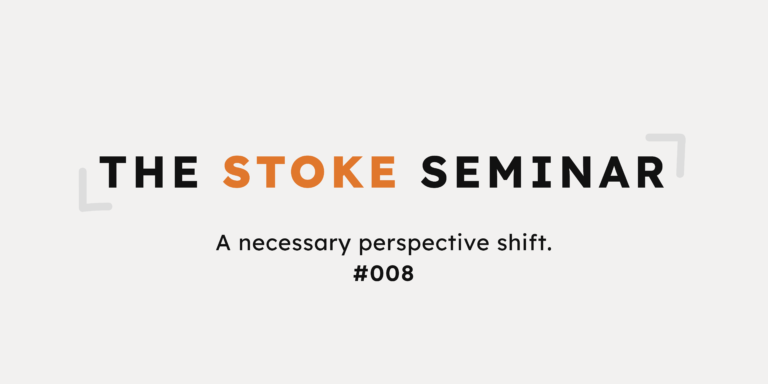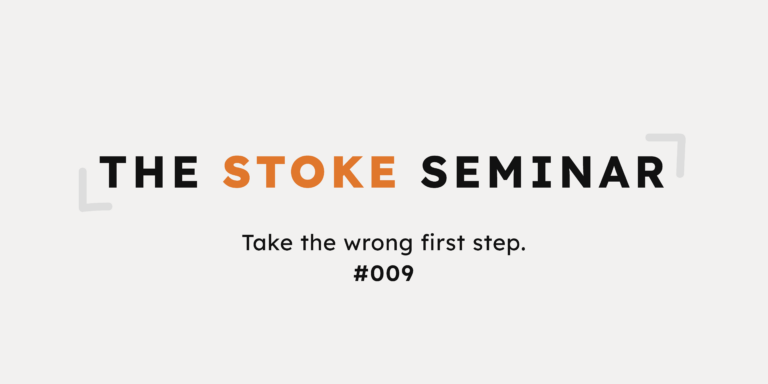Fail often, fail fast (if you want to succeed)
Most people are terrified of failure.
We’ve been conditioned into thinking that failure is the worst possible outcome and to avoid it all costs.
If we fail a class in school, we’re looked down upon.
If we fail at a sport, there’s always another one to try.
We’re taught that failure is for… losers. And so most people spend a majority of their lives too afraid to try anything new, because failure might be a possibility.
Avoiding something entirely is easier than trying and failing. Often times, avoidance feels like the honorable thing to do.
But let’s talk about why fear of failure is a terribly flawed way of living.
Have You Tried Failing?
Imagine a world where trial, testing, and experimentation was encouraged.
Let’s say students had the opportunity to trial 100 different career paths. I would expect each person to fail at ~95 of them. And this doesn’t mean this group of students are simply failures.
This is because each person is created for a unique purpose. And although humans are amazing at shape-shifting, I believe there are 1-3 things that each of us can do miraculously well.
…But first, you have to find that thing.
And finding what you, specifically, are good at feels nearly impossible when failure is often a punishable act for the first ~18 years of our lives.
If something is handed to us, we’re expected to excel at it. And if you don’t, well… you’re a failure.
It’s hardly even considered that when students aren’t great at one thing – that maybe they’d be amazing at another.
Pass this class.
Ace this test.
Create this project.
We’re conditioned to keep up with our peers, avoid failure at all costs, and get a good job with a good company one day.
“That’s the recipe for a good life!”
Or is it?
Move Fast and Break Things
Lately I’ve been taking the opposite approach.
Rather than living by the expectations of the world I was personally raised in, I’ve been looking for ways to fail.
Yes, you read that right.
I am attempting to expedite my failures.
Facebook’s headquarters famously used the motto “Move fast and break things” in the early days of its development.
I want to be able to fail often, and fail fast.
Because the breakthrough realization that a failure-avoidant culture doesn’t highlight is this:
People learn more from failure than they do from success.
And a failure in one area leads to opportunity in another.
When success is the only metric schools, society, and culture cares about – how are we to learn how to try new things?
How will we learn to think outside the box?
How will we find the things that we were personally created to do?
Failure = Opportunity for Impact
I could go on and on about how failure has played a tremendous role in the world we live in today.
Consider the inventors, scientists, and great entrepreneurs of our day.
Edison with the lightbulb.
Bell with the telephone.
Ford with the automobile.
Had these people simply played it safe like a majority of their peers, where would we be today?
Had these people not happily endured thousands of failures, their ground-breaking contributions would not happened.
And without the disappointment of their failures, we all would not benefit from their successes.
So keep that in mind the next time difficultly, challenge, or failure comes your way:
The failures you’re willing to personally endure might lead to hundreds, thousands, or millions of people benefitting from your inevitable successes.
Takeaways For You
Trying new things, learning new skills, and starting new projects feels fun and exciting when you aren’t afraid of failure.
If you view each failure as a stepping stone along the path to your unique contribution to the world, you’d be happy to fail often and fail fast, knowing that each failure provides the learning experience you need to succeed at the next step.
Q: What’s something you’ve been wanting to try, but have been limited by the fear of failure?
Action: Take one small step in that direction this week – and realize it might not be so intimidating after all.
Thanks for reading, see ya next week!
–Eric Pfohl

